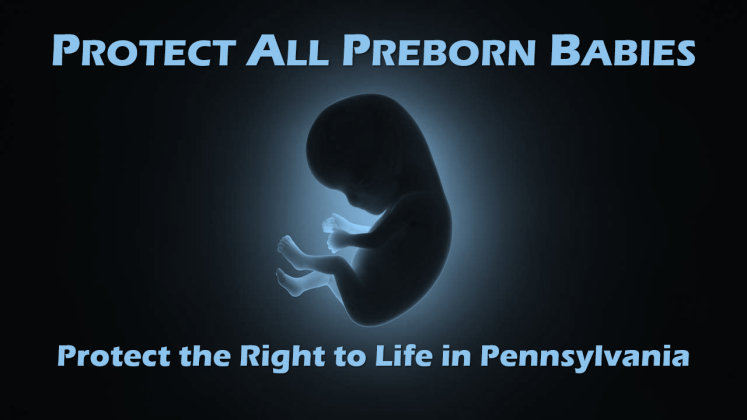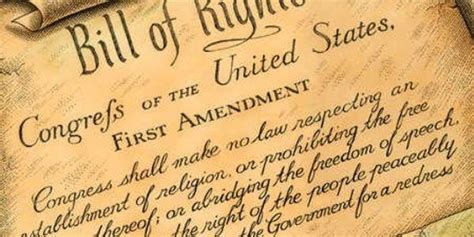
BERKS COUNTY PATRIOTS
Bills
Pennsylvania Bills, News & Updates
Protect the Right to Life in Pennsylvania
OPPOSE HB 1957 & HB 26
Protect the Right to Life in Pennsylvania
Pennsylvania must forbid the practice of abortion, along with other grotesque methods of population control, entirely and uphold the sanctity of life for every person, especially preborn children.
Contact your state legislators
Please help stop (HB 1957) and (HB 26) by contacting your state legislators. Urge them to defend the sanctity of life for every person, especially preborn children.
Click the button to open a box where you can send a pre-written letter in less than a minute.
You may also send a video message, call, or post on X.com amplify your message.
Please help stop HB 1957 and HB 26 by contacting your state legislators. Urge them to defend the sanctity of life for every person, especially preborn children.
Contact your state legislators
Senatee Bill 962 tries to elimnatee Property tax but casues seniors and retires to pay tax on retirement income.
We all know the current rate of increase of school district property taxes is unsustainable and especially impacts seniors and retired/fixed-income citizens.
Many younger people are leaving the state because of the current tax scheme.
Just take a look at this year’s budget proposed by Democrats and passed by Democrats.
The sales tax will increase to 8% and will apply to many items previously not taxed.
Plus, school districts can tax your income up to 1.88% plus the current state income tax.
A main reason to eliminate property taxes is that seniors cannot afford to pay them.
But seniors still might be able to afford their house if the tax is put on their income. I really don’t understand this.
Click below to see Senator Keefer Prime Sponsor and the status.
https://www.palegis.us/legislation/bills/2025/sb962
Click below for the actual Bill
https://www.palegis.us/legislation/bills/text/PDF/2025/0/SB0962/PN1100
House Bill 26 - Endangers Vulnerable Mothers and Children. VOTE - NO
ACTION ALERT: Stop House Bill 26: The So-Called “Reproductive Freedom Act”
Radical pro-abortion legislators have introduced House Bill 26, a dangerous piece of legislation that would completely dismantle Pennsylvania’s longstanding protections for the unborn and rewrite our laws to promote even more widespread abortion. This bill is extreme; it ignores common-sense regulations, and it endangers vulnerable mothers and children.
What HB 26 Would Do:
- Repeal Pennsylvania’s Abortion Control Act, thereby eliminating decades of pro-life protections.
- End parental consent requirements allowing minors to obtain invasive abortions without a parent’s knowledge.
- Eliminate informed consent by removing the 24-hour waiting period and preventing some patients from obtaining critical health information before an abortion.
- Allow non-physicians to perform abortions – expanding already dangerous abortion procedures beyond doctors to nurse practitioners and physician assistants.
- Legalize late-term abortion for “mental health” reasons – a vague standard that has been exploited in other states to remove any time limits on abortion.
- Permit telemedicine chemical abortions, which eliminates in-person medical evaluations, ultrasounds, and other basic health safeguards.
- Remove Born-Alive protections, denying medical care to babies who survive botched abortions.
- Permit taxpayer-funded abortions, forcing Pennsylvanians to pay for elective abortion procedures.
HB 26 represents a complete shift in Pennsylvania law. It would move abortion regulations from the Crimes Code to the Health and Welfare Code, doubling down on the lie that abortion is “health care” instead of revealing what it truly is: the taking of an innocent life. Furthermore, this bill criminalizes pro-life counseling by making it a felony offense to “coerce” a woman into keeping her baby – another vague standard that could easily be used to silence pastors, pregnancy resource centers, and even family members.
This bill is radical, reckless, and completely out of step with Pennsylvania values.
TAKE ACTION NOW!
Tell your representatives to vote NO on HB26 and protect Pennsylvania’s pro-life safeguards.
Use the form below to send a message to your representatives and stand up for life! for life!
SB120 Legalize Marijuana VOTE NO! VOTE NO!
SB120 Legalize Marijuana
for
Recreational use in Pennsylvania
Summary
SB120 is an all-out push to legalize marijuana for recreational use in Pennsylvania, setting up the government to profit from more addictive use of industrialized high-potency drugs. This bill would create a predatory industry that prioritizes profit over public health. It would hinder local authority and grow government by charging the Liquor Control Board to oversee advertising and licensing of state-sanctioned marijuana st-ores.
What’s at stake if SB 120 passes:
- Communities lose control: Local residents would have a short window to meet petition qualifications and have a judge stop a pot shop from opening in your neighborhood —and the ruling can’t be appealed.
- Government expansion: The state Liquor Control Board takes charge of licensing, ads, and sales.
- High-potency marijuana legalized: No limit on the THC potency of marijuana concentrates—linked to addiction and mental health crises.
- Home-grow allowed: Up to four plants per household, with vague security rules.
This bill follows the same failed path as other states.
YES even in Colorado after 10 years now it has failed to generate more
Equitable Tax Money!
Where commercialized marijuana is legal, we’ve seen:
- More children hospitalized after THC exposure
- A rise in youth psychosis, addiction, and depression
- Increased drug-impaired traffic fatalities
- Growing strain on law enforcement and workplaces
- A black market that continues to thrive
“Our son was bright and full of potential. After years of high-potency THC use, he drowned during a mental health episode. Had he never used marijuana, we believe he’d be alive today.” — Jeff & Patti Weaver, Allegheny County
State officials should not be incentivized by addiction. For every $1 in marijuana tax revenue, states like Colorado face over $4.50 in social and economic costs. That’s why major organizations oppose recreational marijuana legalization—including the American Academy of Pediatrics, PA Fraternal Order of Police, PA Chiefs of Police Association, and Christian Medical and Dental Associations.
TAKE ACTION: Contact your State Senator and Representative and ask them to oppose SB120 – an irresponsible plan for dangerous high-potency marijuana legalization
House Bill 300 Will Harm Privacy Rights and Religious Freedoms VOTE – NO
Summary
Take Action:
Say NO to Kenyatta’s House Bill 300, which would harm privacy rights and religious freedom.
https://advocacy.charityengine.net/Default.aspx?isid=2571
Summary:
HB300 was introduced by PA State Rep. Malcolm Kenyatta (D-Philadelphia) and other Democratic lawmakers and could be on a fast track.
The Senate version is SB150, introduced by Sen. Santarsiero (D-Bucks) and Senate Democrats. It is critical that your State Representative and State Senator hear from you ASAP to oppose both of these bills.
Everyone deserves the right to be treated with dignity and respect. But HB300 would instead make harmful changes to our state’s non-discrimination law by creating special protected classes for “sexual orientation” and “gender identity,” thereby creating a host of consequences that impact religious freedom and privacy rights.
The state non-discrimination law (the Human Relations Act) was enacted in 1955 to prohibit discrimination based on color or national origin. Its broad scope affects public accommodations, including schools, businesses, health care, and more. It affects employment and housing.
Female athletes would be forced to compete against biological men and would lose their right to privacy in spaces like bathrooms, locker rooms, dorms, and shelters.
Religious entities such as Christian schools and ministries would lose the right to exercise their convictions about human sexuality in employment and more. Creative professionals would be forced to engage in messages that violate their conscience.
Medical doctors would be forced to prescribe hormones or perform sex reassignment surgeries. Women’s shelters would be forced to admit biological men who identify as women.
Contact your State Senator today to oppose House Bill 300 – the deceptively named the so-called “Fairness Act.” This bill would seriously threaten privacy and religious freedom.
HB 350 Dignity of Women and Rights of Children PLEASE VOTE - NO
House Bill 350 has passed the House 112-91. Roll call vote can be found here.
HB350 passed the House. Tell your Senators to oppose the Uniform Parentage Act!
Summary
Take Action: Protect Children & Reject the Uniform Parentage Act
Status update: House Bill 350 has passed the House 112-91. Roll call vote can be found here.
Contact your Senator today to encourage them to oppose the Uniform Parentage Act.
“The safety and well-being of children should be paramount when considering legislation concerning parental rights. House Bill 350 fails to address those concerns.” – Judge Cheryl Allen
House Bill 350, also known as the “Uniform Parentage Act,” poses serious concerns for the rights of children, the dignity of women, and the integrity of family.
The Uniform Parentage Act treats children as commodities. A primary concern with this proposed bill is redefining parentage to be based solely on intent rather than biology, severing the natural bond between parent and child. It would allow unrelated adults to be named on birth certificates without adoption or proper screening. It eliminates protections that currently ensure the best interest of the child—such as judicial review and the adoption process—and opens the door for children to be treated as property in commercial surrogacy and even paid sexual arrangements for conception.
House Bill 350 would legalize commercial surrogacy, stripping children of their biological identity, access to medical history, and family roots, while expanding profit-driven reproductive contracts. The result of this legislation would be to put a price tag on babies, increasing the likelihood of abusive arrangements.
We must not allow children to be commodified, or women exploited under the guise of reproductive freedom.
Lawmakers need to hear from concerned citizens now. Please contact your state senator and urge them to oppose HB 350. Children are not commodities—they deserve protection, identity, and the right to be connected to their biological origins.
HB350 passed the House. Tell your Senators to oppose the Uniform Parentage Act!
House Bill 1500 Would Unfairly Target Cyber Charter Schools VOTE - NO
Contact your State Representative and State Senator today. Urge them to oppose House Bill 1500 and stand up for school choice and opportunities for all Pennsylvania families.
https://advocacy.charityengine.net/Default.aspx?isid=2533
Summary
Take Action: HB 1500 Undermines Education Options for Pennsylvania Families
UPDATE: HB1500 passed the PA House, 104-98
State lawmakers should be working to ensure that every family has access to the best educational opportunities for their children. In today’s dynamic educational landscape, parents have more options than ever, including a growing interest in cyber charter schools.
Empowering parents to choose the educational environment that best fits their child is a winning solution.
Unfortunately, Pennsylvania is falling behind in expanding education options. Instead of supporting student-centered policies, some lawmakers are pushing legislation that would limit choice and reduce access to educational opportunities.
House Bill 1500 would unfairly target cyber charter schools.
The proposed bill would slash their funding by 40% and cap tuition at just $8,000 per student, one-third of the funding currently spent on students in traditional public schools ($23,000). These cuts would undermine a vital public school option.
Cyber charter schools are growing because they meet needs that many district schools do not. Tens of thousands of students—many from low-income or underserved communities—are thriving in cyber schools that offer flexible, personalized education
Contact your State Representative and State Senator today. Urge them to oppose House Bill 1500

House Bill 158 Save Women’s Sports in Pennsylvania VOTE YES
TAKE ACTION SEND AN EMAIL
https://advocacy.charityengine.net/Default.aspx?isid=2338
Summary
We are hoping that this bill makes it to the Pennsylvania House floor for a vote, and we are working to make that happen!
Contact your state representative TODAY and ask them to support bringing House Bill 158 to the floor for a vote as quickly as possible!
If we believe in equal opportunities for women, that must include sports.
Girls are losing their right to a fair playing field in sports because they are being forced to compete against male athletes.
This isn’t about hard work – it’s about biology. Men ale athletes have physical performance advantages that propel them to outperform women’s athletic performance. These biological differences are why sports are separated by sex in the first place.
Forcing girls to compete against boys removes equal opportunities, crushes female-made records, and takes away countless chances at scholarships and awards.
This unfair reality is becoming increasingly prevalent in Pennsylvania and throughout the nation, and flies in the face of Title IX (Nine) enacted by Congress 50 years ago.
The Save Women’s Sports Act would ensure girls in Pennsylvania are not forced to compete against boys in sex-specific sports.

Senate Bill 10, Pennsylvania Award for Student Success (PASS) VOTE - YES
FIND LINK ??
Scholarship Program will make scholarships available to families living in the Commonwealth’s lowest-achieving school districts.
Summary
Parents want more options when it comes to their child’s education. More options help children because education is not a one-size-fits-all.
The Pennsylvania Award for Student Success (PASS) scholarship program, Senate Bill 10, led by prime sponsor Sen. Judy Ward, will make scholarships available to families living in the Commonwealth’s lowest-achieving school districts. This is one option that aims to help children who live in failing school districts. These scholarships can directly help families in Harrisburg, Pittsburgh, Philadelphia, and elsewhere in Pennsylvania, where school districts fall in the bottom 15 percent of performance metrics based on state testing.
Students who live within the attendance area of a low-achieving school deserve access to educational alternatives like PASS Scholarships, which may be used towards various educational needs, including tuition, fees, and textbooks.
PASS Scholarships would directly fund students, helping families with children in the lowest-rated school districts choose a school where that child can thrive. There is built-in accountability because we know that ultimately, parents know which schools best serve the needs of their children.
Parents know their children best. Parents should have the right to choose where their children attend school, and we should empower more parents to provide their children with a better solution for success in education.
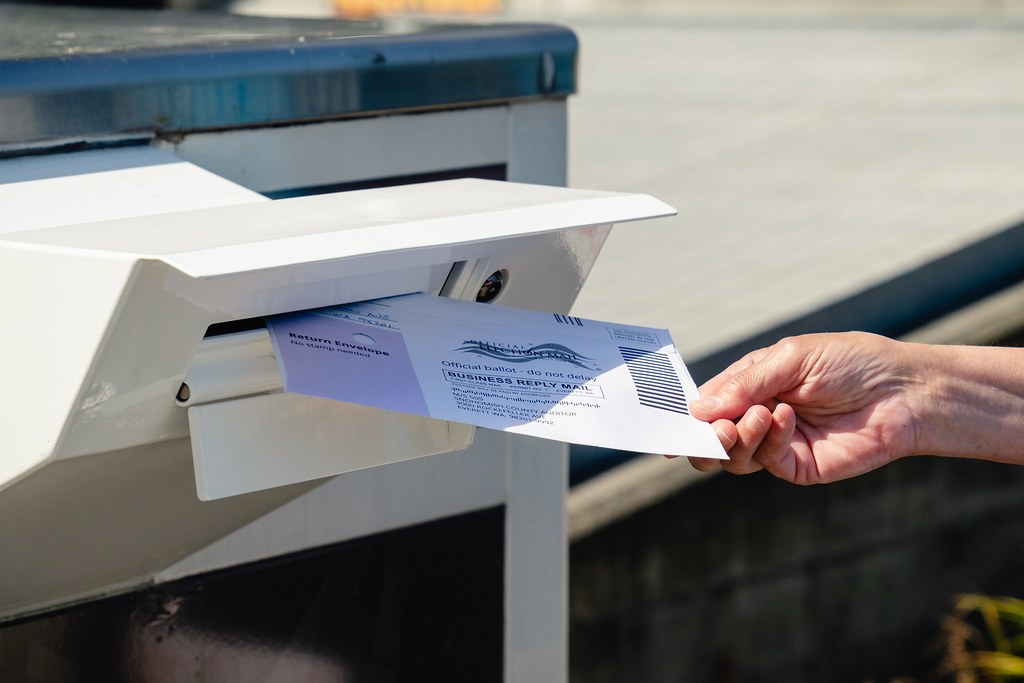
Senate Bill 705 voting by qualified mail-in electors. Providing for applications for official mail-in ballots.
VOTE No… No…. NO!
[(g) Permanent mail-in voting list.–
(1) Any qualified registered elector may request to be placed on a permanent mail-in ballot list file at any time during the calendar year. A mail-in ballot application shall be mailed to every person otherwise eligible to receive a mail-in ballot application by the first Monday in February each year or within 48 hours of receipt of the request, whichever is later, so long as the person does not lose the person’s voting rights by failure to vote as otherwise required by this act. A mail-in ballot application mailed to an elector under this section, which is completed and timely returned by the elector, shall serve as an application for any and all primary, general or special elections to be held in the remainder of that calendar year and for all special elections to be held before the third Monday in February of the succeeding year.
(2) The Secretary of the Commonwealth may develop an electronic system through which all qualified electors may apply for a mail-in ballot and request permanent mail-in voter status under this section, provided the system is able to capture a digitized or electronic signature of the applicant.
Last Action: Referred to State Government, April 30, 2025, Senate
Bill has not yet been reported out of committee
Referred to the State Government
Prime Sponsor
Senator Patrick Stefano R Senate District 32
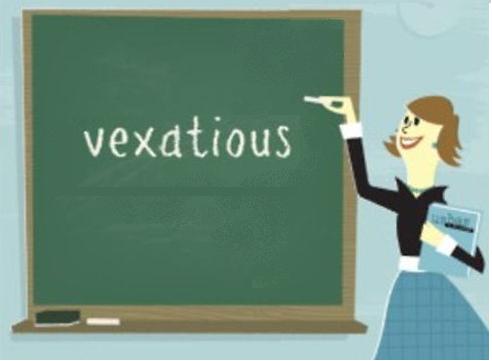
SENATE BILL No. 790 "Right To Know" Vexatious requester
https://www.palegis.us/legislation/bills/text/PDF/2025/0/SB0790/PN0845
“Vexatious requester.” An individual who submits one or more
vexatious requests.
The General Assembly of the Commonwealth of Pennsylvania hereby enacts as follows: Section 1. The act of February 14, 2008 (P.L.6, No.3), known as the Right-to-Know Law, is amended by adding a section to read: Section 906.
Vexatious requesters. (a) Petition for relief.– (1) Except as provided under paragraph (2), an agency may petition the Office of Open Records for relief from a requester alleged by the agency to be a vexatious requester. The petition shall: (i) be submitted under penalty of 18 Pa.C.S. § 4904
INTRODUCED BY DUSH, BROOKS, LAUGHLIN, FONTANA AND STEFANO, MAY 28, 2025 REFERRED TO STATE GOVERNMENT, MAY 28, 2025
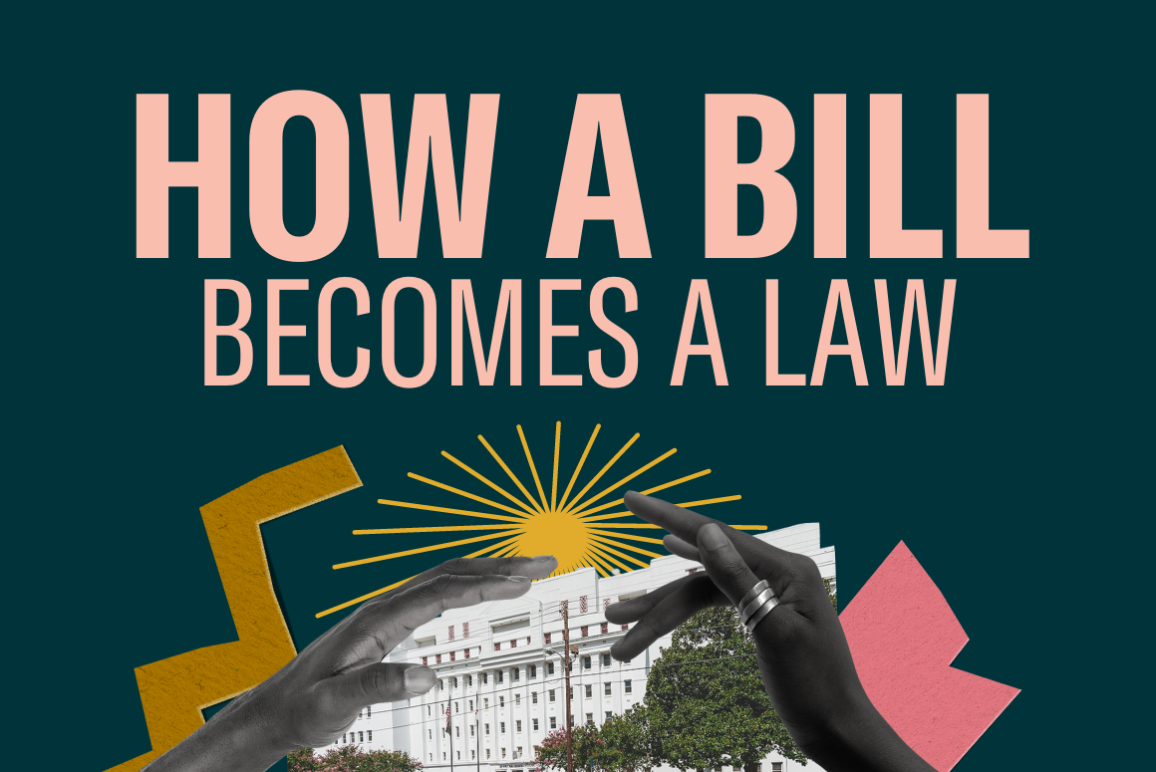
How a Bill becomes a Law Part 1 of 5
PROGESSION OF A BILL IN PENNSYLVANIA
Either a Representative or Senator starts with an IDEA
During the two-year session of the Legislature, between 4,000 and 5,000 bills are introduced in both Houses.
This idea is filed with the Secretary Parliamentarian of the Senate.
In the SENATE
The Parliamentarian gives the bill a number and delivers to the President Pro Tempore.
The President Pro Tempore then must refer the bill to a committee within 14 days.
The Parliamentarian will then give the “numbered bill” to the chairman of the designated committee.
In the HOUSE
A member of the House files the bill with the Chief Clerk
At the end of each day’s session in the House, the Chief Clerk will deliver all bills to the Speaker of the House.
The Speaker of the House then delivers it to the appropriate standing committee.
The next day the Speaker announces the previous day’s bills to the entire House. Senate and public distribution.
The Committees
Obviously, it would be impossible for the Senate and House to get through the voluminous legislative business of enacting new laws; amending present ones; appropriating money; investigating governmental operations and all the other duties that devolve upon the General Assembly without the effective procedure of a committee system.
There are approximately twenty-two standing committees in the Senate and approximately twenty-seven with sub-committees in the House.
When They are NOT In Session
The popular opinion is that when the Legislature is not meeting, nothing is being done. The fact is that most of the work of the session is being carried forward by these standing committees when the General Assembly is not in session.
Once a bill is in committee, the committee has full power over it. Sometimes it is referred by the chairman to a sub-committee with instructions to study and make a report of its recommendations to the main committee.

How a Bill becomes a Law Part 2 of 5
Reporting the Bill to the Floor
One of the committee members reports the bill to the Floor, either as committed (which means without change), as amended (with change), or, in rare instances with a negative recommendation. The committee may also decide not to report the bill at all.
Interestingly …
The Senate or House, by a majority vote of the members elected, may discharge its committees from consideration of any bill.
First Consideration in the SENATE
When a committee favorably reports a bill to the Senate it is given a first consideration.
This counts as day 1 of 3.
There may be an objection. (The Constitution of Pennsylvania requires that each bill shall be considered on three different days in both the Senate and House).
During this First Consideration… No Debate or amendments are permitted from the Floor.
The bill is voted on or agreed to and is advanced to the calendar.
Second Consideration in the SENATE
Senators may now propose amendments from the Floor of the Senate, of course they must be germane to the subject of the bill.
When a bill has been agreed to on second consideration, it is then placed on the next day’s calendar for third consideration,
If amendments are made and agreed to it must be reprinted.
Third Consideration in the SENATE
This will be the third day. After consideration and then agreeing to the bill a third time it will be advanced to the final passage, at which time its merits may be debated. The bill may also be amended.
At the conclusion of the debate, the roll of Senators is called and, if a constitutional majority of twenty-six Senators votes in its favor, the bill passes the Senate.
On a special class of appropriation bills, the Constitution requires a larger majority—two-thirds of the elected membership in each house.
Sending it to the House
After the bill has passed the Senate, it is transmitted to the House by the Message Clerk. The Chief Clerk of the House signs a receipt for the bill, and it is then handed over to the Speaker of the House, who refers it to one of the House Standing Committees.

How a Bill becomes a Law Part 3 of 5
In the HOUSE
A member of the House files the bill with the Chief Clerk
At the end of each day’s session in the House, the Chief Clerk will deliver all bills to the Speaker of the House.
The Speaker of the House then delivers it to the appropriate standing committee.
The next day the Speaker announces the previous day’s bills to the entire House, the entire Senate and for public distribution.
First Consideration in the HOUSE
If the bill is reported from committee, it follows somewhat the same course of passage as in the Senate except in the area of first consideration. The bill is agreed to BUT…..
Laid on the Table
When the bill is reported from committee and given first consideration, it is not automatically moved on to a second consideration but is laid on the table.
It may be removed from the table by a motion from the Majority Leader, or his designee, acting on a report by the Rules Committee.
Such report must be in writing and a copy thereof distributed to each Member.
When the bill is so removed from the table, it is placed on the second consideration calendar on the legislative day following such removal.
This procedure does not prohibit any Member from asking a motion to remove the bill from the table.
After Fifteen Days on the Table or Sooner
If the bill remains on the table for fifteen legislative days, it is automatically removed from the table and placed on the calendar for second consideration the next legislative day
BUT…. HOWEVER – Between first Monday in June & first Monday in September
If the bill is reported by the committee between the first Monday in June and the first Monday in September, it is, after first consideration, rereferred to the Rules Committee.
After the first Monday in September, all bills so referred to after the first Monday in June are automatically reported from the Committee, laid on the table. It is then given the second consideration either by motion or after fifteen days.
Basically, No Bills are moved to Second Consideration during the summer (June, July & August).
Second, Third and Final Passage in the HOUSE
Second consideration, third consideration, and final passage procedure is the same as in the Senate with one hundred and two votes being the constitutional majority required for final passage in the House.
24 more hours
If a bill is amended on third consideration, it is reprinted and requires 24 hours before final passage vote.
Amendments from the other House
The House may amend a Senate bill, in which case it is returned to the Senate for concurrence in the House amendments.
The Senate may amend House bills in the same manner.
Defeating the Bill
Either house may defeat the bill of the other house, either in committee or on the Floor.

How a Bill becomes a Law Part 4 of 5
How are Refusal to Amendments Handled?
The Six…. A Conference Committee is formed.
Three members are chosen from each House by The Speaker & Pres Pro Tempore
Their job is to resolve the differences between the two houses on the bill. When an agreement is reached their report is sent to their respective houses
The Conference Committee Report is presented.
The Senate requires waiting six hours before voting.
The House requires waiting 24 hours before voting.
Both Houses must have a constitutional majority for the adoption of a Conference Committee Report.
When a Bill has Finally Passed
When a bill has passed finally in both houses, it is signed by the both the President Pro Tempore of the Senate and the Speaker of the House in the presence of each house.
The Governor’s Consideration
The bill is then transmitted to the Governor for his consideration.
If he approves, he signs the bill, and it becomes a law.
If the Governor does not act upon a bill within ten calendar days after it has been received by him, while the General Assembly is in session, it automatically becomes law.
The Governor’s Veto
If he vetoes the bill it will be returned to the house of origin, together with the Governor’s reasons for the veto. The General Assembly has the power to pass a bill over the Governor’s veto by a constitutional vote of bill over the Governor’s veto by a constitutional vote of two-thirds of the Members in both Houses house.
No Action – Automatically Becomes Law
After final adjournment of the current General Assembly (Two Years), the Governor has thirty days to act upon the remaining bills passed by both houses.
Bills on which the Govenor takes no action automatically become law.
It is rare indeed for a bill to become law because of the Governor taking no action.
When a Bill is Given an Act Number
The official certified copy of each bill approved by the Governor is placed in the custody of the Secretary of the Commonwealth, given an act number and filed in the State Department. It then loses its identity as a bill and becomes an “Act of the General Assembly.” The Legislative Reference Bureau, the agency in which the bill originated, prepares the act for printing.
The Director of the Bureau, in punctuating and editing the act may, with the approval of the President Pro Tempore of the Senate, the Speaker of the House of Representatives and the Office of Attorney General, make any corrections which will not in any manner affect or change the meaning, intent or substance of the act.
Examples of such corrections are misspelled words, typographical errors, plural or singular number, past, present or future tense appears where another should be used, a word clearly should have been omitted, etc.

How a Bill becomes a Law Part 5 of 5
What is a Pamphlet Law?
What are Advanced Copies of Enacted Statutes?
After all this is done, the Bureau publishes the acts in book form, known as the Pamphlet Laws, for distribution to the courts, attorneys, libraries and citizens of our Commonwealth who may request them. There is also an individual copy of the act printed for distribution, and they are called “advanced copies of enacted statutes.” This saves sending a copy of the bound P.L.s when just one act is desired – this then is the law
Explanation to Facilitate Reading of Legislative Bills
■ [Light face brackets] are used only in bills amending an existing law. They indicate that anything enclosed thereby appears in the existing law, but that it is proposed to omit it from the law as amended. The brackets and anything enclosed by them are carried along into the law, if the bill is finally enacted.
■ Underscoring is used only in bills amending an existing law. It indicates that the underscored matter does not appear in the existing law, but that it is proposed to insert it in the law as amended. The underscored matter will be carried into the law if the bill is finally enacted.
■ Ellipses (***) are used only in bills amending an existing law. They indicate omitted law which is not proposed to be changed in the bill.
■ [Dark face brackets] are used only in bills that have been amended, either in committee or on the Floor of either house. They indicate brackets inserted by such amendment and have the same effect as light face brackets.
■ Strike out type is used only in bills that have been amended either in committee or on the Floor of either house. They indicate that anything so printed appeared in a previous print of the bill but is to be deleted and will not appear in the text of the law if the bill is finally enacted.
■ CAPITAL LETTERS are used only in bills that have been amended, either by committee or on the Floor of either house. They indicate that the matter in capital letters did not appear in the original print of the bill but was inserted into the bill by amendment in either house. The matter in capital letters will be carried into the law, if the bill is finally enacted, in ordinary print, unless it is also underscored, in which case it will be printed in italics.
■ Strike out type and CAPITAL LETTERS indicate only the amendments made to the bill at the last previous stage of passage. All prior strike out amendments are dropped entirely from the new print, and all insert amendments previously shown in CAPITAL LETTERS are reset in lower case type. The one exception to this rule is a house bill amended more than once in the Senate or a Senate bill amended more than once in the house will, on the second and subsequent printings, cumulate all amendments made in the latter House, so that all amendments in which concurrence by the House of origin is required will stand out.
■ The line immediately preceding the title of the bill shows the stage of passage at which the amendments appearing on that print were made. All preceding printer numbers of each bill are shown in consecutive order in a line at the top of the first page of each bill.

SHORTER VERSION How a Bill becomes a Law Part 1 of 2
Starts with an IDEA and sends it to the “Legislative Reference Bureau” not sure why
The IDEA gets typed up and given back, probably in a bill like form, to the Legislature or Legislators that came up with the IDEA.
The secretary gives the IDEA a number. I would assume it is now a bill.
The President Pro Tempore refers the bill to a committee. Most likely the chair of a committee.
The committee will then discuss the bill. I am not sure how changes are made. I would guess if changes arte made it would only need to go back to the Legislative Reference Bureau to be re-typed.
The committee takes a vote to put it to a First Consideration
POSSIBLE ACTIONS
The bill can have a public hearing. But it does not need to have a public hearing
The bill can be committed as is. NO CHANGES
The bill may also be amended. If amended the bill will need to be reprinted.
Vote not to report bill to Senate for Action
#1 First Day or First Consideration differs a bit in the House and the Senate, but, in both instances, the first consideration is an announcement that a bill has been reported from the respective committee to the entire House or Senate.
There are no debates,
There are no votes
Ther no amendments from the floor in either Chamber.
In the Senate, the bill is automatically placed on the calendar for a second day or second consideration.
#2 Second Day or Second Consideration
POSSIBLE ACTIONS
A debate is permitted
An amendment is permitted (must be reprinted)
Vote is permitted
#2 Third Day or Third Consideration
POSSIBLE ACTIONS
Amendment permitted on third consideration
(If amended, bill is reprinted and requires six hours before final passage vote)
No amendments allowed on final passage
Debate permitted on final passage
Bills must be in printed form and on desks of Senators
26 votes required for final passage
If the bill passes…..
The bill moves to the House
BILL IS NOW IN THE HOUSE
The Chief Clerk receives the bill from the Senate
The Chief Clerk give the bill to the Speaker of the House who refers the bill to a committee
If the committee votes yea it moves out of committee. The bill goes to First Day or First Consideration
First Day or First Consideration
POSSIBLE ACTIONS
No debate
No amendment
Laid on table (After first Monday in June — rereferred to Rules Committee)
TABLE
May be removed by motion of Majority Leader as recommended by Rules Committee
May be removed by motion of any Member duly made and adopted
Automatically removed after 15 Legislative Days
Second Day or Second Consideration
POSSIBLE ACTIONS
Must be called up for consideration
Debate permitted
Amendment permitted (If amended, bill is reprinted)
Vote permitted
Third Day or Third Consideration
POSSIBLE ACTIONS
Amendment permitted on third consideration (If amended, bill is reprinted and requires 24 hours before final passage vote)
No amendment on final passage
Debate permitted on final passage
102 votes required for final passage
If the bill passes…..
The bill moves back to the Senate
TRANSMITTED BACK TO SENATE IF AMENDED — SEE DESCRIPTION OF ACTION ON REVERSE
IF NOT AMENDED Signed by Secretary of Senate Signed by President of Senate or President Pro Tempore
TRANSMITTED BACK TO HOUSE
Signed by Speaker
TRANSMITTED TO STATE DEPARTMENT FOR RECORDING
TRANSMITTED TO GOVERNOR BY STATE DEPARTMENT
GOVERNOR REFERS BILL TO ATTORNEY GENERAL FOR OPINION AS TO LEGALITY AND CONSTITUTIONALITY
GOVERNOR
POSSIBLE ACTIONS
GOVERNOR APPROVES
GOVERNOR PERMITS BILL TO BECOME LAW WITHOUT HIS SIGNATURE • If not signed within ten days when Legislature is in session — bill becomes law • If not signed within 30 days when Legislature has adjourned sine die — bill becomes law
TRANSMITTED BY GOVERNOR’S OFFICE TO STATE DEPARTMENT FOR CERTIFICATION, ASSIGNMENT OF ACT NUMBER AND FILING
STATE DEPARTMENT – Legislative Reference Bureau
COPY TRANSMITTED TO LEGISLATIVE REFERENCE BUREAU FOR PREPARATION
PRINTER

SHORTER VERSION How a Bill becomes a Law Part 2 of 2
GOVERNOR VETOS the BILL
If vetoed — bill is given a veto number by the State Department and returned to house of origin for possible further action. •
If vetoed — bill may be repassed by a two-thirds vote of the Members elected to both houses.
In the House, the bill is “laid on the table.” When it is laid on the table it becomes inactive, but it can only stay that way for up to fifteen legislative days. Once the fifteen days are up, the bill is removed from the table and placed on the calendar for second consideration.
However, if the Rules Committee recommends that it come off the table sooner, the Majority Leader can motion that the bill be removed from the table.
Additionally, a member of the House can motion for a bill to be removed from the table as long as they have the support of the majority of the members.
Between the first Monday in June and the first Monday in September, when a bill is reported out of committee to the House of Representatives, it is sent to the Rules Committee after first consideration.
After the first Monday in September, bills are re-referred to the floor of the House and laid on the table. To be taken off the table, the procedure above must be followed.
